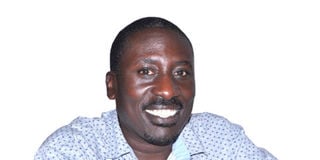Prime
After Museveni, we’ll have ‘Musevenism’

Philip Matogo
The leader of the People’s Front for Transition, Dr Kizza Besigye, said this week that he is hopeful Uganda will go through a peaceful handover of power, but this will not happen under President Museveni.
“Frankly, I don’t envisage a day when Mr Museveni will hand over to another president, but I envisage a day when he’ll be gone, whichever way he goes. I envisage it when he is gone. I envisage a day when Uganda will go through a peaceful handover of power but not under Mr Museveni,” he said while appearing on NBS TV.
Besigye’s words suggest that political power depends on the absence and presence of a given political actor. By extension, a powerful presence draws upon the support of one’s base to elevate oneself above those around oneself. Conversely, the absence of a given political actor creates the opposite effect.
By this reckoning, Mr Museveni has established his presence to the extent that he dominates Uganda’s political stage, creating a political brand that is recognisable, reproducible, and, for the time being, redoubtable.
However, Dr Besigye makes the mistake to assume that once Museveni is off the scene, “Musevenism” will simply disappear. By Musevenism, I refer to the distinctive political practices, systems and subsystems as well as ideologies which animate his rule.
Sure, in the past, we have had leaders who, once off the scene, witness their power vanish.
A case in point is Wasswa Ziritwawula, who resigned as a member of the National Resistance Council, the then equivalent of Parliament, in 1989. Ziritwawula’s withdrawal from the fray turned him into a footnote instead of a reference point in the story of Ugandan politics.
Yet it is precisely because Museveni has dominated the politics of Uganda that his power is likely to loom long after he has left the scene. And it shall loom in the shape of Musevenism. Indeed, those who come after Museveni, especially if they are of the National Resistance Movement, will likely use Musevenism to legitimise their own claim to the throne.
This was seen in China when, upon the death of Mao Zedong, China’s ruling Chinese Communist Party’s (CCP) Politburo Standing Committee moved Mao’s body to a crystal casket in a mausoleum in Tiananmen Square.
His body was more useful there than in his village of Shaoshan, as it conflated his physical and spiritual legacy.
Then, instead of exposing the crimes of Mao’s rule, CCP built a myth out of his rule to support the edifice of the party.
Going by the sway Museveni holds today, the person who will succeed him is likely to be of his (Museveni’s) own choosing. This successor will have to choose between dismantling Musevenism in a post-Museveni Uganda and finding a place for Musevenism within it.
If Museveni’s eventual successor chooses the latter and turns Museveni into a demigod, then that leader will continue to engineer the downfall of political opponents, as Museveni has, while extending his or her power beyond the clutches of the law.
Thus, contrary to what Besigye thinks, Museveni’s legacy may tighten the grip Musevenism has on the country by building a personality cult around the memory of a departed Museveni.
Ugandans, like all other peoples, have political memories circumscribed by specific political interests. If the post-Museveni leaders tap into this logic, they shall legitimise their rule.
Legitimisation demands they realise that Museveni’s paternalistic rule has made many Ugandans look to him as something of a father-figure. Thus, his successors will surely use the widespread feeling of parental loss when he is gone to ensure that the only handover of power will be from Museveni to Musevenism.
Mr Matogo is a professional copywriter
[email protected]
Don’t want to miss out on any story? For updates on all Monitor stories, follow this link on Telegram: https://t.me/dailymonitor




